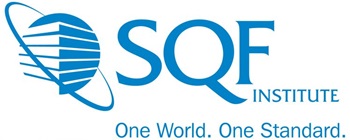Demystifying the Food Safety Certification Process
 Both retailers and customer shoppers have more options than ever when it comes to where they purchase their food, whether it’s to distribute or to consume. As globalization continues to revolutionize the food supply chain, opportunity goes hand in hand with risk. When opportunity expands, so do standards, expectations and responsibilities. Food safety certification becomes continuously more important in order to establish and maintain high standards as a rising number of trading partners will look for food safety certification as an indicator that they can trust certain suppliers. When you can increase trust, mitigate the rising risks, and open the door to even more opportunities, food safety certification becomes a no-brainer.
Both retailers and customer shoppers have more options than ever when it comes to where they purchase their food, whether it’s to distribute or to consume. As globalization continues to revolutionize the food supply chain, opportunity goes hand in hand with risk. When opportunity expands, so do standards, expectations and responsibilities. Food safety certification becomes continuously more important in order to establish and maintain high standards as a rising number of trading partners will look for food safety certification as an indicator that they can trust certain suppliers. When you can increase trust, mitigate the rising risks, and open the door to even more opportunities, food safety certification becomes a no-brainer.
Start My Food Safety Journey Today
What does the certification process look like?
Implementing a food safety management system can be intimidating for the first time. If the path to certification feels unclear to you, you’re not alone. It helps to break down the process so you can build a roadmap to help you navigate the landscape of certification. Some key landmarks that need to be included in that roadmap are:
- Understanding global and national standards
- Assigning the right responsibilities to the right people
- Knowing exactly where your investment is going
The SQF Code can serve as that roadmap for you. When you download Edition 9 of the SQF Code, you’ll find all of the requirements for certification so that your site knows exactly what to expect and how to prepare. Think of it as your atlas (or your Alexa since we’re living in a digital world). Once you open up the Code, you’ll be ready to:
Identify your food sector category. When you identify your category, you can go straight to that section of the Code, creating specifically to outline the requirements for your industry.
Register for certification. When you register in our database, you’ll get access to our community of practitioners and professionals to learn, network, connect, and more.
Build your certification team. SQF Professionals can help you understand the Code and exactly how your team can apply it to your business.
Select your Certifying Body. SQFI partners with licensed CBs that operate both nationwide and around the globe! You can use our interactive map and search criteria to find one near you.
Prepare for and conduct your audit. You can schedule a pre-assessment to make sure everything is ready for your actual audit.
Doesn’t sound so bad, right? Now let’s talk about the timeline.
How long does certification take?
We know getting certified requires an investment of both time and money. The certification process can vary depending on how big and complex your operation is. So the answer really is: it depends! Below are the key timelines to keep in mind for the four core phases:
- Preparing site and staff. This can be as long as your site needs to get organized and staff your team. Preparations include steps 1-4 above, including selecting your Certifying Body.
- Audit. Your audit duration is determined by different factors that affect your site, such as number of employees, size of facility, and more.
- Report. You’ll receive and complete the report within 45 days.
- Success. You’re done! Now you can show off that certification and enjoy the return.
How SQF Code Edition 9 makes things easier
Our most recent Code update aligns with the latest GFSI benchmarking criteria to help organizations gain even more clarity and grow more globally. This criteria is designed to help you meet and exceed all industry, customer, and regulatory requirements, so you can stay competitive. Through Edition 9, you will experience a much smoother, more streamlined audit process that will make your journey even easier to navigate.
Ready to get certified and solidify your place in the food industry?
Download Edition 9 to get started.
Recent Blog Posts
Renee McVey is one of the first industry professionals to hold the Safe Quality Food Institute’s new Certified SQF Practitioner credential, which is administered by Exemplar Global.
The Safe Quality Food Institute announces ASI Food Safety's Stacey Brown and Redbarn Pet Products' Renee McVey as recipients of the 2025 SQF Excellence Awards.
I’m thrilled to share an update on our journey in developing SQF Code Edition 10—a process built on collaboration, transparency, and shared industry insights.




